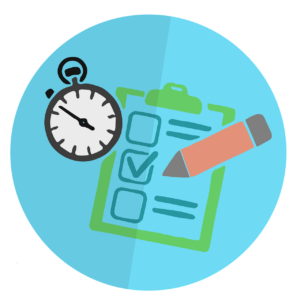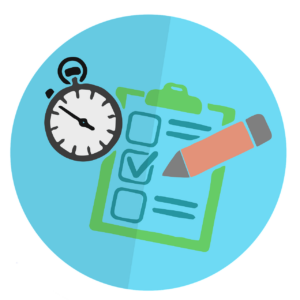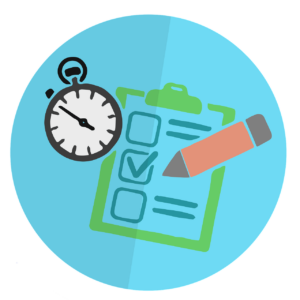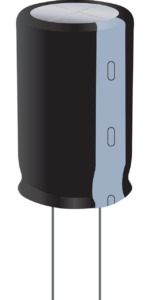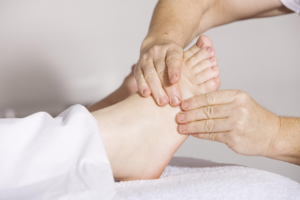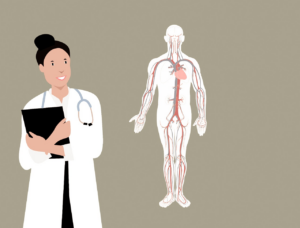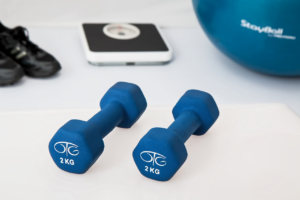Are you a nursing student gearing up for your Fundamentals of Nursing Exam 1? This exam is a critical milestone in your journey to becoming a nurse, as it tests your foundational knowledge in essential nursing concepts and skills.
To help you prepare, we’ve put together a comprehensive guide that includes practice questions and test preparation tips. In the following article, we’ll go over the basics of the Fundamentals of Nursing Exam 1 and provide you with sample questions to test your knowledge.
We’ll also share with you valuable test preparation strategies, such as time management tips and stress-reduction techniques, to help you perform your best on exam day. With our help, you’ll be ready to ace your Fundamentals of Nursing Exam 1 and take the next step towards your career in nursing.
Key Takeaways
- The Fundamentals of Nursing Exam 1 is a critical milestone for nursing students and tests foundational knowledge in essential nursing concepts and skills.
- Effective test preparation techniques include creating a study schedule, reviewing lecture notes, and practicing with sample questions.
- Time management is important, and prioritizing study time by focusing on challenging topics first can be helpful.
- Using the right study resources, such as practice questions and test preparation guides, can help students feel confident and prepared to pass the exam.
Overview of the Fundamentals of Nursing Exam 1
Get ready to dive into the exciting world of nursing as we overview the Fundamentals of Nursing Exam 1! This exam is an important milestone for nursing students, as it tests their knowledge and understanding of the basic concepts and principles of nursing.
The exam content covers a wide range of topics, including patient care, communication, health promotion, infection control, and safety measures.
To prepare for the Fundamentals of Nursing Exam 1, it’s important to use the right study resources. There are many resources available, such as textbooks, study guides, online practice questions, and review courses. It’s recommended to start early and to use a variety of resources to ensure a thorough understanding of the exam content.
Additionally, practicing with sample questions and taking practice tests can help you identify areas where you need to focus your studying. With the right preparation and study resources, you can feel confident and prepared to pass the Fundamentals of Nursing Exam 1.
Practice Questions
You can enhance your understanding and retention of the material by actively engaging with the provided practice exercises. These practice questions are designed to simulate exam-like conditions and will help you identify areas where you may need more study.
Here are three tips to make the most of your practice exercises:
-
Take your time: Rushing through the questions may not give you the opportunity to thoroughly analyze the clinical scenarios presented. Take the time to read each question and answer choice carefully, and consider each option before making your selection.
-
Use your resources: The practice exercises are a great opportunity to test your knowledge, but they’re also a chance to learn. Use your textbooks, notes, and other resources to help you answer questions and understand nursing interventions more fully.
-
Review your answers: After completing the practice exercises, review your answers and take note of the questions you struggled with. This will help you identify areas where you may need more study and improve your performance on the actual exam.
Taking advantage of practice questions is an important step in preparing for the Fundamentals of Nursing Exam 1. By following these tips and actively engaging with the provided exercises, you can improve your understanding and retention of nursing interventions and clinical scenarios, and feel more confident on exam day.
Test Preparation Tips
Preparing for the upcoming assessment can be made easier by following these helpful tips. Effective techniques include creating a study schedule, reviewing lecture notes, and practicing with sample questions. By creating a study schedule, you can ensure that you have enough time to cover all the necessary material before the exam. This also helps you avoid cramming and feeling overwhelmed the night before the exam.
Reviewing lecture notes regularly will help you retain information and identify areas that need further study. Lastly, practicing with sample questions will help you become familiar with the format of the exam and identify areas where you need to improve.
In addition to these effective techniques, there are also helpful resources you can use to prepare for the exam. These include study groups, review books, and online resources such as practice exams and video lectures. Study groups can be a great way to review material with peers and discuss any confusing concepts. Review books provide a comprehensive overview of the material and can be used for quick reference.
Online resources such as practice exams and video lectures can provide additional practice and explanations of difficult concepts. By utilizing these resources and techniques, you can feel more confident and prepared for the upcoming fundamentals of nursing exam.
Time Management Strategies
When it comes to studying for the fundamentals of nursing exam, it’s important to manage your time effectively.
To do this, you’ll need to prioritize your study time, create a realistic schedule, and avoid procrastination.
By following these key points, you’ll be able to make the most of your study sessions and feel confident going into the exam.
Prioritize Study Time
To effectively prepare for the fundamentals of nursing exam, it’s important to prioritize study time by focusing on the most challenging topics first. This means identifying areas where you need to improve and dedicating more time to studying them. By prioritizing content, you can make the most of your study time and ensure that you cover all the necessary material before the exam.
To help you prioritize your study time, consider using effective techniques like creating a study schedule and breaking down complex topics into smaller, more manageable parts. A study schedule can help you allocate time for each topic and ensure that you cover everything before the exam. Breaking down complex topics can also help you focus on specific areas and make it easier to understand the material. To further help you prioritize, consider using a table to organize the topics you need to study. Here is an example:
| Topic | Priority Level |
|---|---|
| Anatomy and Physiology | High |
| Medical Terminology | Medium |
| Patient Care Skills | High |
| Pharmacology | High |
By prioritizing your study time and using effective techniques, you can increase your chances of success on the fundamentals of nursing exam. Remember to dedicate more time to the most challenging topics, create a study schedule, break down complex topics, and use a table to organize your priorities. Good luck studying!
Create a Realistic Schedule
One of the keys to successful studying is creating a realistic schedule that fits your busy life. You can’t expect to cram in hours of studying every day if you have work, family, and other obligations. That’s why it’s important to create a schedule that is achievable and in line with your goals.
Here are some tips to help you create a realistic schedule that works for you:
-
Start by identifying your goals and priorities. What do you need to achieve in order to pass your fundamentals of nursing exam? What are your work and family obligations? Once you have a clear idea of your priorities, you can start to create a schedule that fits your needs.
-
Allocate your time wisely. Break your day down into manageable chunks and allocate your time accordingly. For example, if you have work in the morning, you might want to allocate an hour of studying time in the evening. Or, if you have a free afternoon, you might want to schedule a longer study session.
-
Be flexible. Life is unpredictable, and things don’t always go according to plan. That’s why it’s important to be flexible and adjust your schedule when necessary. If you miss a study session, don’t beat yourself up about it. Just adjust your schedule and make up the time later.
-
Set realistic goals. Don’t try to cram in too much studying in a short period of time. Set realistic goals that you can achieve, and work towards them gradually. This will help you avoid burnout and stay motivated.
-
Stay organized. Keep track of your schedule and your progress. Use a planner or a calendar to help you stay on track, and make sure to review your progress regularly. This will help you stay motivated and focused on your goals.
By following these tips, you can create a realistic schedule that allows you to achieve your goals and pass your fundamentals of nursing exam. Remember, it’s important to be patient and consistent, and to stay focused on your goals. With the right mindset and a realistic schedule, you can achieve anything you set your mind to.
Avoid Procrastination
Don’t let procrastination sabotage your success in passing the fundamentals of nursing exam by following these tips.
First, prioritize your tasks and set realistic deadlines for each one. This will help you manage your time effectively and ensure that you accomplish everything that needs to be done without feeling overwhelmed or rushed. You can use a planner or calendar to keep track of your schedule and deadlines, and set reminders to keep you on track.
Second, use productivity tips to help you stay focused and motivated. For example, try breaking down larger tasks into smaller, more manageable steps, which can help you make progress while avoiding the feeling of being overwhelmed. You can also try using the Pomodoro technique, which involves working in focused 25-minute bursts with short breaks in between, to maximize your productivity.
By being mindful of your time management and using productivity tips, you can avoid procrastination and set yourself up for success on the fundamentals of nursing exam.
Tips for Reducing Stress
To reduce stress, you can practice relaxation techniques such as deep breathing or meditation.
Getting adequate sleep and exercise can also help you manage stress more effectively.
Don’t hesitate to seek support from your peers or instructors if you need it – they can provide valuable insights and help you stay on track.
Practice Relaxation Techniques
Try practicing relaxation techniques, such as deep breathing or meditation, to reduce stress and promote overall well-being. Relaxation techniques are a great way to calm your mind and body, and help you cope with stress.
Deep breathing exercises, for example, can help slow down your heart rate and reduce blood pressure, while meditation can help clear your mind and improve your focus.
To practice deep breathing, find a quiet place where you won’t be disturbed. Sit comfortably with your back straight and your hands on your lap. Close your eyes and take a deep breath in through your nose, filling your lungs with air. Hold your breath for a few seconds, then slowly exhale through your mouth. Repeat this process several times, focusing on your breath and letting go of any tension or stress in your body.
With regular practice, this technique can help you feel more relaxed and centered.
Get Adequate Sleep and Exercise
Make sure you’re getting enough sleep and exercising regularly to improve your overall well-being. Adequate sleep and regular physical activity are essential for maintaining a healthy body and mind.
Here are some benefits of sleep and the importance of physical activity:
-
Benefits of Sleep:
-
Helps the body repair and rejuvenate itself
-
Improves memory and cognitive function
-
Boosts mood and reduces stress levels
-
Importance of Physical Activity:
-
Reduces the risk of chronic diseases such as heart disease, diabetes, and obesity
-
Improves cardiovascular health and strengthens muscles and bones
-
Enhances overall mood and energy levels
Making time for sleep and exercise may seem challenging, but it’s worth the effort for the health benefits. Aim for at least 7-8 hours of sleep per night and 30 minutes of physical activity most days of the week. Start with small changes, such as taking a brisk walk during your lunch break or limiting screen time before bed.
Your body and mind will thank you for it!
Seek Support from Peers and Instructors
You can greatly benefit from seeking support from your peers and instructors when facing academic challenges or personal stressors. Peer support can provide a sense of community and help you feel less alone in your struggles. You can form study groups with classmates or seek out a mentor who has successfully navigated the same challenges you are facing. Instructors can also offer guidance and support, whether it be through office hours, email correspondence, or extra tutoring sessions. Don’t be afraid to reach out and ask for help when you need it.
To further illustrate the importance of seeking peer support and instructor guidance, consider the following table:
| Benefits of Peer Support | Benefits of Instructor Guidance |
|---|---|
| Provides sense of community | Expert knowledge and experience |
| Can offer different perspectives | Personalized feedback |
| Increases motivation and accountability | Access to additional resources |
| Opportunities for collaborative learning | Helps navigate academic and personal challenges |
By seeking support from both your peers and instructors, you can create a strong support system to help you succeed in your nursing studies. Remember, asking for help is a sign of strength, not weakness.
Next Steps After the Exam
Now that the exam is over, it’s time to consider what steps you can take to continue improving your nursing skills and knowledge.
One of the first things you can do is engage in post exam reflection. Take some time to think about how the exam went, what you did well, and what you could improve upon. This reflection can help you identify areas of weakness and develop a plan to address them.
Another important step is to perform a self-evaluation. This involves assessing your strengths and weaknesses, and identifying areas where you need to improve. You can use this information to create a plan for continuing education or professional development. By focusing on areas where you need to improve, you can become a better nurse and provide better care to your patients.
Remember, learning is a lifelong process, and there’s always room for growth and improvement.
Frequently Asked Questions
What is the passing score for the Fundamentals of Nursing Exam 1?
To pass the Fundamentals of Nursing Exam 1, you must score above the passing score. The passing score varies depending on the difficulty of the exam. Generally, a passing score is around 65-70% correct answers, but this can change based on the exam’s difficulty level.
It’s important to remember that passing the exam doesn’t necessarily mean you know everything about nursing; it simply means you have met the minimum requirements to pass. Therefore, it’s important to continually study and improve your nursing knowledge even after passing the exam.
Are there any prerequisites for taking the Fundamentals of Nursing Exam 1?
Before taking any exam, it’s important to know if there are any prerequisites or eligibility criteria that you must meet. For the Fundamentals of Nursing Exam 1, there are no specific prerequisites that you need to complete before taking it.
However, it’s important to note that you must be enrolled in a nursing program or have completed a nursing program in order to be eligible to take this exam. Additionally, you should have a basic understanding of nursing concepts and terminology in order to be successful on the exam.
It’s always a good idea to review the exam content and study materials to ensure that you’re fully prepared for the exam.
How often is the Fundamentals of Nursing Exam 1 offered?
The frequency of exam administration for the fundamentals of nursing exam 1 varies depending on the institution offering the exam. Some schools may offer the exam every semester while others may only offer it once a year.
It’s important to check with your school’s nursing department or academic advisor to determine when the exam will be offered. Additionally, there are many resources available to help you prepare for the exam, such as study guides, practice tests, and tutoring services.
Make sure to take advantage of these resources to ensure you’re fully prepared for the exam when it becomes available.
Can I bring my own calculator to the exam?
When it comes to the calculator policy during exams, make sure to check the exam room rules beforehand. Some exams may allow you to bring your own calculator, while others may require you to use a specific type provided by the exam proctor. It’s important to follow these rules to avoid any issues during the exam.
So, if you’re unsure about the calculator policy for your upcoming exam, be sure to ask the exam proctor or check the exam room rules to avoid any surprises on test day.
What is the format of the Fundamentals of Nursing Exam 1?
The format of the nursing exam will consist of different types of questions. There’ll be multiple-choice questions, true/false questions, and short answer questions.
The multiple-choice questions will require you to select the best answer from a list of options. The true/false questions will require you to indicate whether a statement is true or false. The short answer questions will require you to provide a brief response to a specific question.
Make sure to read each question carefully and understand what’s being asked before answering.
Conclusion
Congratulations! You’ve made it to the end of our guide to the Fundamentals of Nursing Exam 1. By now, you should have a better understanding of the exam and have gained some valuable tips and strategies for test preparation.
Remember, practice makes perfect, so make sure to use the practice questions provided and review the key concepts thoroughly.
As you prepare for the exam, don’t forget to manage your time effectively, reduce stress, and take care of yourself both physically and mentally.
After the exam, take some time to reflect on how you did and identify areas where you can improve. With dedication, hard work, and the right mindset, you’ll be well on your way to success in your nursing career.
Good luck!
















